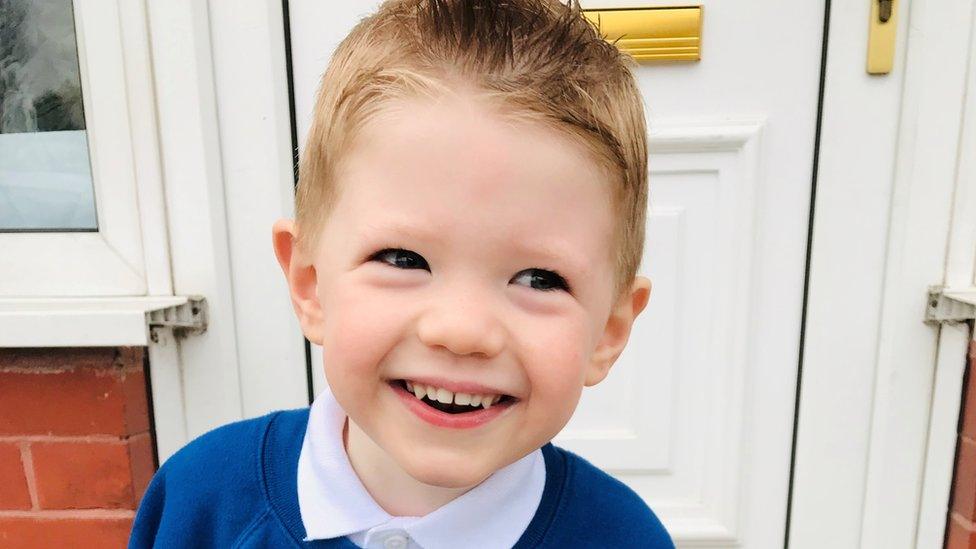Sudden unexplained death in childhood: Charity hails new NHS efforts
- Published
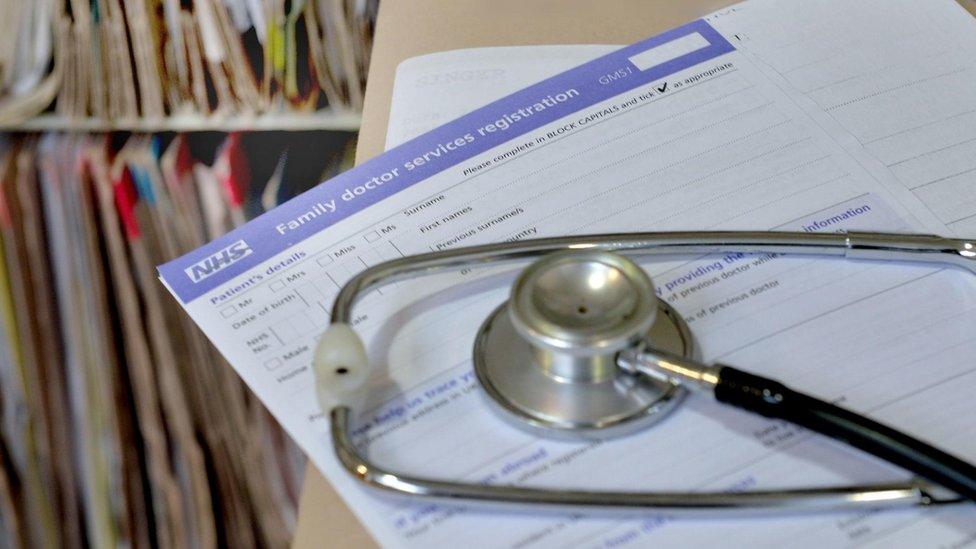
NHS England is piloting new methods of gathering data at numerous health trusts
NHS England has "never shown so much support" to stop children dying without explanation, a charity which works to prevent unexplained deaths has said.
Sudden unexplained death in childhood (SUDC) is a rare category of death in which the cause remains unknown even after thorough investigation.
Currently there is very little awareness or research into its causes.
NHS England has said it will now begin a series of measures to change this, a move welcomed by the charity SUDC UK.
These include:
Piloting systems to improve education of health professionals and gather data to help identify modifiable factors which will go on to establish processes to help manage the deterioration of children
Improve information given to families and professionals about SUDC
Separately, data from every child whose death has been put down as SUDC since 2019 will being reviewed by the National Child Mortality Database
Dr Nikki Speed, from the charity SUDC UK, described the plans as revolutionary.
"This is such positive historic progress, a landmark moment. Never has the NHS shown such support to stop sudden unexplained death in childhood," she said.
"Never has there been such a clear statement to review public information on SUDC, optimise data collection and learn how we could prevent future tragedies.
"We finally have confidence that things will progress in our fight to stop SUDC."

Sudden unexplained death in childhood
SUDC covers children aged one and above
Although the number of deaths is difficult to determine, it is estimated that about 40 children over the age of one die suddenly every year - more than young child deaths from traffic accidents, fires or drowning
Office of National Statistics data from 2020 and 2021 shows SUDC is the fourth leading category of death in one to four-year-olds in England and Wales
As with cot deaths, most SUDC cases occur during sleep
About 12,000 scientific studies have been published into SIDS - only 50 have been for SUDC
It is estimated about a third of SUDC cases involve children who have had febrile seizures
Source: NHS England / SUDC Charity, external

However, Dr Speed added more needed to be done.
"The NHS public website still contains no basic information on sudden unexplained death in childhood, there is also no consistent medical awareness or education on this category of death.
"This means that if a child has died and SUDC is listed as the cause of death, today families would probably struggle to find basic information or the necessary support."
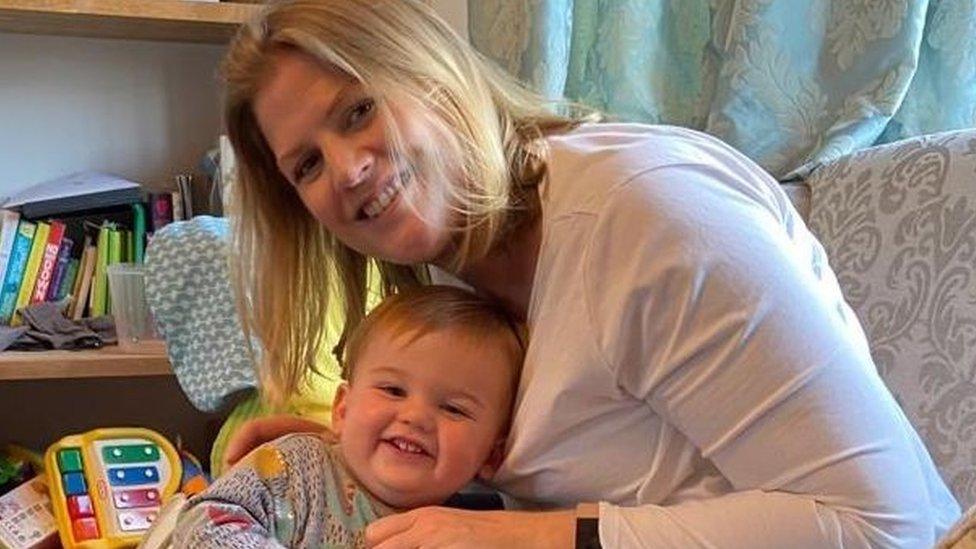
Louis Rogers died in his sleep shortly before his second birthday
The progress came following a meeting between the charity, bereaved parents Julia and Christian Rogers and Prof Simon Kenny, NHS clinical director for children and young people.
The measures the NHS is implementing were outlined to Mr and Mrs Rogers's local MP, Kwasi Kwarteng, after he wrote to the chief executive of NHS England, Amanda Pritchard.
Mrs Rogers, whose son Louis died suddenly in his sleep shortly before his second birthday, said she welcomed the commitment from the NHS to transform information for SUDC parents.
"I have found that many medical professionals are just not aware of SUDC and its link with febrile convulsions even though it is one of the leading causes of death for children and so this will be a huge step forward," she said.
"We are quick to talk about the risks and safety measures for children when it comes to road safety, water safety and in many other aspects of life which have a far lower death toll than SUDC.
"It has fallen in the gap because it's not high profile enough or fully understood and this must change."

If you have been affected by the issues raised in this story, help and support is available via the BBC Action Line

Follow BBC London on Facebook, external, Twitter , externaland Instagram, external. Send your story ideas to hellobbclondon@bbc.co.uk, external
Related topics
- Published20 June 2022
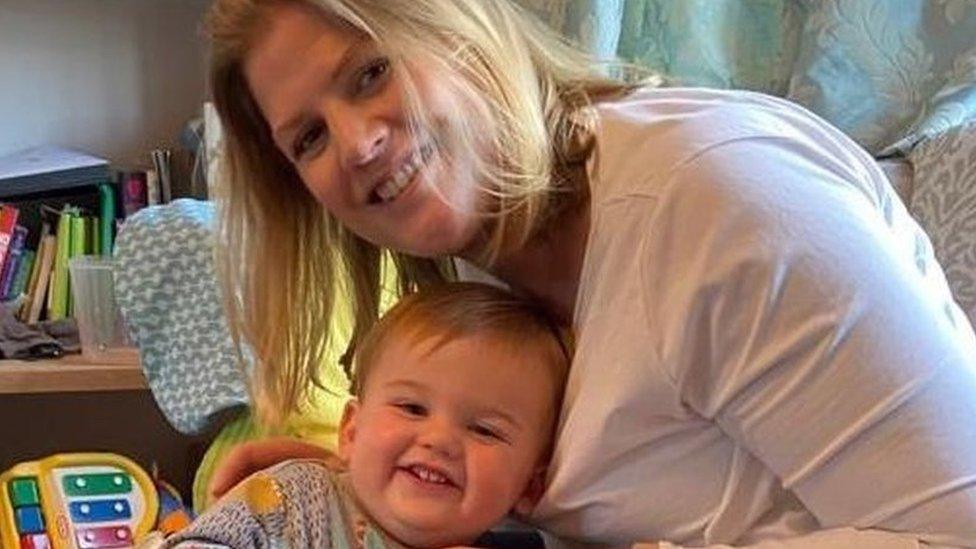
- Published8 October 2022

- Published18 June 2022
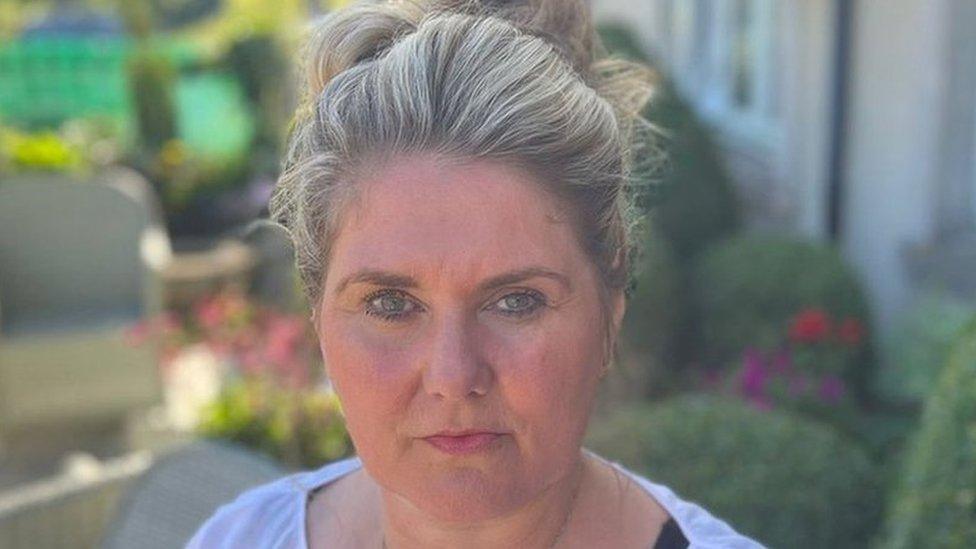
- Published10 March 2021
